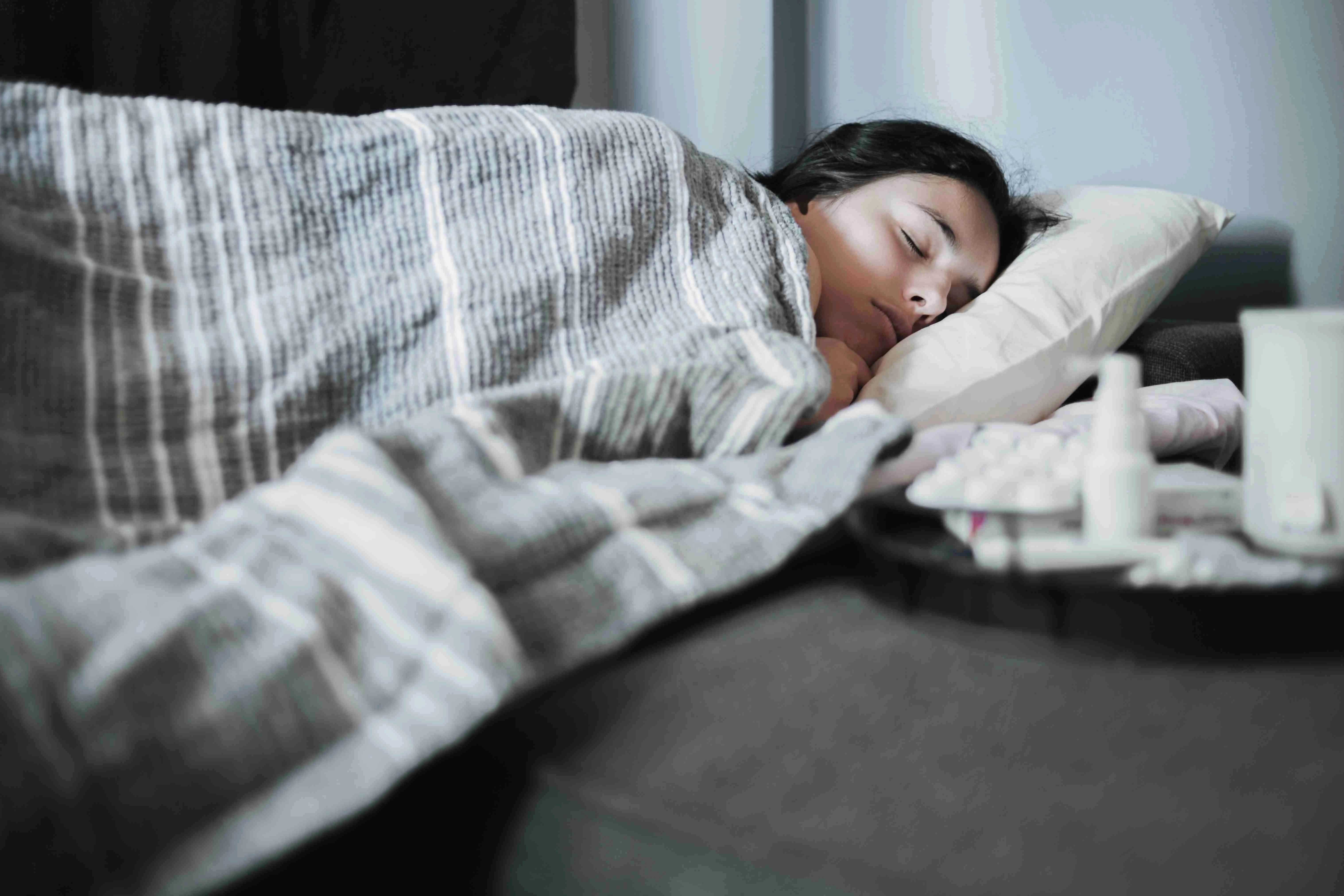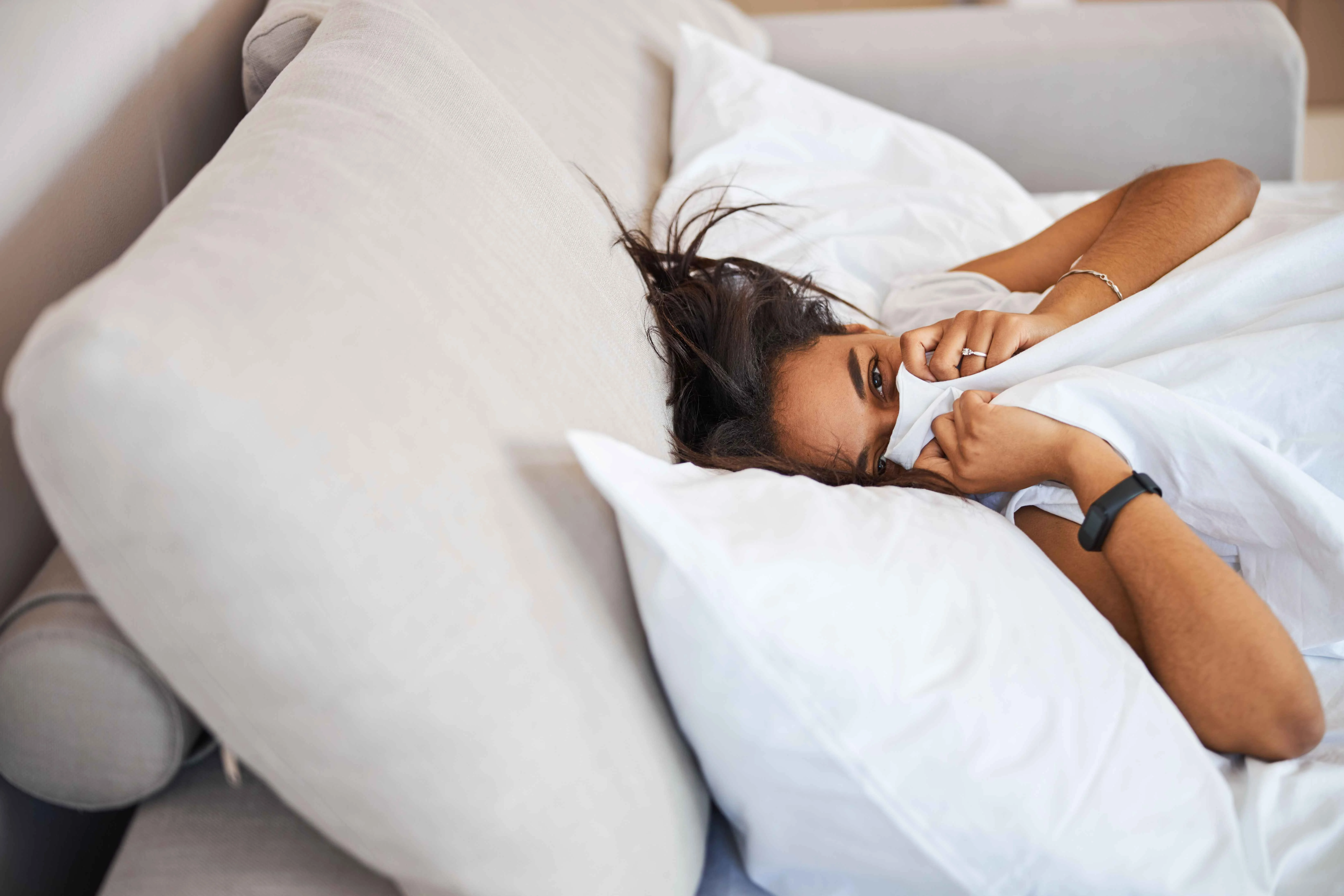
Sleep is as critical to a healthy lifestyle as nutrition and exercise are for one’s mental health and physical health. It is crucial for bodily functions, helping you recover energy, heal, and control your emotions. Despite its importance, we often overlook the impact of sleep on health, particularly immunity.
It is important to understand how sleep enhances the immune system and increases overall health, as a lack of sleep can significantly compromise the body’s ability to fight off diseases and recover from illness.
In this article, we discuss the relationship between sleep and immune function, focusing on the influence that sleep duration and quality have on immune responses. We will also discuss practical strategies and lifestyle adjustments to improve sleep and boost your immune system.
Understanding the Immune System
Knowing how the immune system works is essential to understanding how important sleep is for boosting immunity. The body depends on the immune system to protect against infections and maintain general health.
What is the immune system?
The immune system is the body’s powerful defensive system, protecting it against harmful bacteria, viruses, and other pathogens.
It comprises a wide range of cells, tissues, and organs. It serves as the body’s main system for identifying and reacting to external invaders and offering an important line of protection against disease. The immune system employs two different response mechanisms: innate immunity and adaptive immunity.
The innate immune response is the body's initial defense against harmful invaders like bacteria, viruses, and toxins, offering immediate but nonspecific protection. It works fast, usually within minutes or hours, to recognize and get rid of threats through mechanisms like inflammation and physical barriers like the skin and mucous membranes.
However, the adaptive immune response takes time to develop, and most importantly, it targets specific invaders. It builds immunity by recognizing particular pathogens encountered in the past and responding more rapidly to that same pathogen in the future. With long-lasting protection, this memory-based system provides stronger and faster responses. Immunological memory, which is the ability to store information about pathogens, allows the immune system to establish quicker and more effective defenses.
The innate immunity and adaptive immunity systems provide a comprehensive defense against various diseases and infections.
Key Components of the Immune System
- White Blood Cells (WBCs): WBCs are critical as they help identify and destroy dangerous intruders such as viruses and bacteria. To defend the body, they move through the blood and lymphatic system. Leukocytes, a subset of WBCs, are essential in initiating and maintaining immune responses against infections.
- Antibodies: Pathogens are targeted and neutralized by proteins called antibodies. They offer protection against diseases by binding to dangerous intruders and marking them for elimination.
- Bone Marrow: The bone marrow produces red and white blood cells, among other cells required to resist infections. The production of immune cells depends on it.
- Thymus: The thymus is where the T cells grow. Finding and eliminating abnormal and infected cells relies on them.
- Lymphoid Organs (Spleen, Lymph Nodes, Tonsils): The lymphoid organs identify and filter out dangerous pathogenic microorganisms from blood and other body fluids and eliminate them. Tonsils and spleen are responsible for the immune reactions needed to detect and resist infections; lymph nodes act as centers for immune cells. Lymph nodes also act as a meet point for antigen presenting cells and T cells, ensuring a coordinated immune response.
The Role of Sleep in Supporting Immunity

Sleep not only facilitates rest and energy conservation but also plays an important role in building our immune system's defenses.
Essential functions during sleep help control the processes involving immune cells, enhance the production of antibodies, and prepare the body to withstand pathogens. These processes include the activation of anti-inflammatory pathways, regulation of cytokine production, and support of natural killer cells.
The immune response is also strengthened by sleep’s regulation of hormone levels, including prolactin, which promotes the growth and activation of immunological cells like lymphocytes.
Knowing the connection between sleep and immune function and the impact of not having it provides the key to understanding why a good night’s sleep is critical for well-being.
How Sleep Enhances Immune Function
Getting adequate sleep is important for a well-functioning and healthy immune system. In deep restorative sleep, known mainly as the non-REM phase in the sleep stages, the body releases immune cells, including T cells and natural killer cells, responsible for seeking and destroying harmful intruders like viruses and bacteria.
Furthermore, growth hormone, which promotes cellular repair and the immune system as a whole, is released during this period.
At the same time, the body generates cytokines, proteins that help guide immune responses, decrease inflammation, and facilitate tissue healing. These cytokines are essential for healing and recovery during sleep. Deep sleep also activates anti-inflammatory mechanisms that protect the body from chronic conditions.
The body’s internal clock, called the circadian rhythm, coordinates with the immune system to prioritize the production of antibodies and cell repair at night during sleep. During this time, antigen presenting cells play a crucial role in processing and displaying pathogens to T cells. This coordinated process supports the immune system by helping the body identify and attack infections more effectively.
Sleeping 7 to 9 hours regularly helps the body eliminate viruses and build up its defenses against threats. Immunological memory, which enables the immune system to react to previously encountered infections efficiently, is also supported by adequate sleep.
The Impact of Sleep Deprivations on Immunity
Sleep Deprivation weakens the immune system, making it harder for the body to fight off illness and function at its best. The relationship between sleeplessness and immune system functioning shows how critical rest is for your health.
Sleeplessness is associated with less effective immune system functioning, as it disrupts crucial processes that help the body identify and fight off harmful invaders. When we don't get enough sleep, T cell activity decreases, cytokines production decreases, and natural killer cells are reduced, which affects the body’s ability to recognize and eliminate harmful pathogens.
In addition, sleep deprivation leads to an increase in pro-inflammatory cytokines, which can intensify existing health problems like diabetes or heart disease by triggering systemic inflammation. Sleep deprivation disrupts the body’s balance between pro-inflammatory and regulatory cytokines.
Furthermore, sleep deprivation also affects immunity, impairing the body’s ability to fight infections and weakening vaccine response by reducing the effectiveness of immune memory function. The lack of sleep can cause a slower rate of recovery and increased vulnerability to infections, including acute illnesses like influenza.
The decrease in natural killer cells caused by chronic sleep loss compromises the body’s first line of defense against pathogens. Sleep deprivation disrupts the gut microbiota, an essential component of our immune system, diminishing the body’s overall defenses.
Less than 6 hours of sleep leaves individuals sleep deprived which can weaken and disrupt the immune response, leaving the body less equipped to protect itself against potential threats.
Factors That Impact the Sleep-Immune Relationship
Several lifestyle, environmental, and individual variables influence the connection between immunity and sleep. Understanding how they impact immune system function and sleep quality is crucial.
Lifestyle Habits

Your daily routines affect the quality of your sleep and the effectiveness of your immune function. Your decisions regarding diet, exercise, and substance use can enhance both sleep and immunity.
- Diet: A healthy, balanced diet helps maintain a healthy immune system. Nutrient-rich foods like fruits, vegetables, meat, and whole grains can enhance immune responses through several vitamins, minerals, and antioxidants. However, excessive sugar and processed foods may lead to inflammation and reduce immune response.
- Exercise: Consistent physical activity increases circulation and enhances the distribution of immune cells throughout the body, helping the body fight infections. However, intense workouts without enough rest have decreased immunity; thus, finding balance is an essential part of an exercise routine. Learn more about How Does Exercise Affect Sleep.
- Substance Use: Substances like alcohol, tobacco, and nicotine may negatively impact immune functions through lowered production of immune cells and disturbance of sleep patterns. Their elimination makes the immunity response more effective, and their sleep improves.
- Sleep Hygiene: The key to quality sleep and strong immunity lies in building healthy sleep habits, known as sleep hygiene. Staying on a sleep schedule will help your body keep its internal clock on track, and having a calm, comfortable environment for bed can help your body get a deeper rest. Decreasing the use of screens and eliminating stimulants such as caffeine can help prevent sleep disruptions. However, relaxing activities like reading and meditation help further restorative sleep and strengthen the body’s defenses.
Sleep Environment

A calm environment enhances deep, restful sleep, which strengthens the immune system.
- Adjusting Room Temperature: Maintaining cooler room temperatures between 60 and 67°F (15 and 20 °C) should promote faster sleep and deeper relaxation, both essential for synthesizing and maintaining immune cells. Extreme heat or cold temperatures can disturb natural human sleep cycles.
- Controlling Noise: Low-level noise can cause significant sleep disturbances and prevent the body from reaching deeper sleep phases, which are crucial for immunological healing. White noise devices or soundproofing your space might help reduce these disruptions.
- Managing Light Exposure: Exposure to natural light during the day and darkness at night affects your circadian cycle, which promotes healthier sleep. Ensure your sleeping area is dark to encourage your body’s natural production of melatonin, which is essential for a sound sleep.
- Bedding and Mattress Quality: A comfortable mattress and good quality bedding are essential for good sleep. Breathable bedding that helps keep you at the right body temperature paired with a mattress that aligns with your sleeping position will prevent discomfort and allow you a night’s rest without interruption. Choosing the right materials and design improves comfort as well as sleep quality.
Consistent Sleep Patterns
Regular sleep patterns are considered essential to the immune system and sleep. When sleeping patterns are maintained regularly, the circadian rhythm can strengthen its signal to the body regarding sleep.
Setting routines fosters the development of immune functions and sleep efficiency. Creating a bedtime routine is a practical way to become consistent.
Social and Psychological Factors
Social connections and emotional well-being influence immune health and sleep quality. Building strong relationships and managing stress can enhance your sleep and immunity.
- Chronic Stress: When stress becomes chronic, it weakens the immune system, raises cortisol levels, and reduces sleep quality. Mindfulness, yoga, or meditation help regulate cortisol, reduce stress, and increase restfulness.
- Anxiety and Depression: Disturbances of sleep and immune weakening are common with conditions such as anxiety and depression. They could lead to insomnia and low immune responses. These conditions can be managed by therapy or support groups.
- Shift Work Disorder: Irregular work schedules disrupt the body’s internal clock, known as shift work disorder, harms sleep quality and immunity. To manage this, keep daily routines as consistent as possible and adjust sleep to shift times for better sleep and recovery.
- Social Connections and Loneliness: Positive relationships can reduce stress and feelings of loneliness and increase sleep quality and immunity. Isolation, however, can weaken the immune system. Activities that promote emotional well-being or spending time with loved ones build immunity.
Medical Conditions
Sleep health conditions can impact your sleep and immune system. If you experience a medical condition that impacts sleep, you should get it treated, as its symptoms can worsen immune deficiencies.
- Chronic Conditions: Certain diseases such as diabetes, hypertension, hepatitis, and asthma can affect your sleep, which can lessen your immune defense over time. These conditions can impair lymph node function, reducing its ability to filter dangerous pathogens effectively. When managed with medical advice, sleep and immunity can be improved.
- Sleep Disorders: Certain conditions, such as restrictive sleep apnea, insomnia, narcolepsy, and restless leg disease, interfere with restorative sleep needed for immune health. Treating these sleep disorders is essential for immunity. The next section discusses these sleep disorders to understand their impact on immunity.
Common Sleep Disruptors and Their Effect on Immunity

Disruptions to sleep can negatively impact the immune system, making the body more vulnerable to illness. These disruptions may arise from different sources, including health conditions and lifestyle choices, all interfering with sleep quality.
Sleep Disorders
- Sleep Apnea: A disorder characterized by sleep breathing disruptions that fragment rest and reduce the body’s ability to maintain immune cells. Sleep apnea condition can make inflammation chronic, which compromises immunity.
- Insomnia: If your sleep duration and quality are limited, your body cannot maintain adequate immune function. This condition, known as insomnia, heightens your susceptibility to illness and hinders your recuperation.
- Restless Leg Syndrome: Individuals with restless leg syndrome experience disruptive leg movements during rest. It may interfere with sleep and make it difficult for the immune system to fight infections effectively.
- Narcolepsy: Signs of narcolepsy are the symptoms of excessive daytime sleepiness and sudden sleep attacks. The body’s immune system becomes less effective during these interruptions to normal sleep cycles.
- Circadian Rhythm Disorder: Disruptions to the body’s internal clock are known as circadian rhythm disorders. Examples like jet lag and irregular shifts confuse the timing of key biological processes such as immune regulation, weakening the immune system.
Lifestyle Factors
- Screen Time: When you spend too much time on screens before bed, you are exposed to blue light, which inhibits the production of melatonin, the hormone that signals sleep. Delaying falling asleep disrupts your natural sleep-wake cycle, leading to poor-quality sleep and compromised immune function. Learn more about How Electronics Affect Sleep.
- Irregular Sleep Schedules: Inconsistent sleep patterns disrupt the body's circadian rhythm, the biological process responsible for regulating our sleep cycles. Because of these disruptions, it is harder to get the restorative sleep needed to boost immunity and keep the body healthy.
- Late Caffeine Consumption: Consuming caffeine in the late afternoon or evening delays sleep time and disrupts deeper stages of sleep. It impairs immune function, increases inflammation, and reduces overall health by disturbing the body’s ability to repair itself during sleep. Learn more about How Long Does Caffeine Keep You Awake.
- Poor Nutrition: Lacking essential nutrients, including vitamins and minerals, can affect sleep and immune responses. If processed or sugary foods are consumed frequently, inflammation and disrupted metabolic processes will further weaken the body's defenses, disrupting sleep cycles. Learn more about Nutrition.
- Dehydration: Lack of proper hydration can result in physical discomfort, including dry mouth or muscle cramps, which may affect sleep quality. It can also prevent the body from resting deeply, limiting immune efficiency and overall resilience.
Environmental Factors
- Room Temperature: Extreme heat or cold disrupts the body’s natural sleep cycle, making it difficult to achieve restful sleep. Consequently, this interferes with the body’s ability to repair immune cells correctly.
- Noise Levels: A high noise level, even if subtle, can interrupt sleep and prevent you from reaching a deep state of rest. Over time, this disruption weakens the immune system.
- Light Exposure: Exposure to artificial or natural light at night slows down melatonin production, which may delay sleep and promote poor sleep quality.
- Uncomfortable Bedding or Mattress: Beds or mattresses that are uncomfortable may cause restless sleep, impairing the body’s ability to recover and strengthen its immune system.
- Cluttered Space: A messy or chaotic sleep environment can raise stress levels and reduce the ability to relax, reducing sleep and immune health.
Ways to Improve Sleep to Boost Immunity
Healthy sleep habits can enhance sleep quality and immunity, resulting in a stronger defense system.
Establishing Healthy Sleep Habits
- Maintaining a Consistent Sleep Schedule: Sleeping and waking up simultaneously each day reinforces the circadian rhythm by helping the body establish well-defined sleep patterns. This will ensure the highest restoration of immunity.
- Practicing Relaxation Techniques: Meditation and deep breathing are examples of relaxation techniques that help reduce stress levels, ensure good sleep, and help your immune system work better.
- Create a Relaxing Pre-Bedtime Routine: Before sleeping, do a light stretch, read a book, or listen to soothing music to signal to the body that it is time to relax and sleep. This practice helps you relax, which facilitates sleep.
- Avoid Heavy Meals Before Sleep: Consuming heavy or rich meals near bedtime may cause discomfort and indigestion and interfere with your sleep stages. Instead, go for fruits or nuts as light snacks to make your body comfortable and ready to sleep. Learn more about Healthy Bedtime Snacks.
- Stay Hydrated: Proper hydration throughout the day is important for supporting bodily functions, like restful sleep. However, don't drink too much liquid before bedtime, as it can cause you to wake up frequently. Learn more about Hydration and Sleep.
Optimizing Sleep Environment
- Creating a Comfortable Sleep Space: By ensuring that your bed, blankets, and room make you feel comfortable, you can sleep better, which will support immune health. This includes using mattresses and pillows that provide proper support and a bed that gives you enough freedom to move freely.
- Ideal Room Conditions: Steps that can encourage deeper sleep and help you boost immunity include improving room conditions such as adjusting the temperature to a comfortable level and minimizing light and noise levels.
- Use Blackout Curtains or Sleep Masks: Blackout curtains or sleep masks easily block out light disturbances like streetlights or early morning lights. Creating a dark environment promotes the natural production of melatonin, a hormone that promotes better restfulness and sleep.
- Minimize Noise with Earplugs or White Noise: White noise machines or earplugs can be used as tools to mask or block disruptive sounds, such as traffic or loud neighbors. This makes sleeping quieter and less disrupted so the body can recover and maintain immune health while sleeping more deeply.
Lifestyle Adjustments
- Avoiding Stimulants Before Bed: Substances like caffeine and nicotine can greatly impact your sleep quality. Eliminating their consumption, especially before sleep, helps with better sleep and immune health.
- Managing Stress: Relaxation and stress-reduction activities such as mindfulness meditation, yoga, and progressive muscle relaxation can reduce cortisol levels, improve sleep, and boost immunity.
- Prioritizing Balanced Nutrition: Eating the right nutrients benefits the immune system and helps people sleep better. When your body gets the right healthy nutrients, it has the energy to sleep as needed, and the immune system works better.
- Exercise Regularly: Regular physical activity helps maintain immune function and improves sleep quality. Exercise increases circulation, which makes it easier for immune cells to move around the body. However, avoid working out right before bed since it can raise your energy and make it harder to fall asleep. Optimal benefits come from exercising early in the morning or early afternoon. Learn more about the Best Exercises for Better Sleep.
FAQs
How does the lack of sleep affect my immune system?
Sleep Deprivation weakens the ability of the body to produce immune cells and antibodies that are required to fight dangerous bacteria and viruses. You are more vulnerable to getting sick, and healing takes longer.
Can sleeping too much weaken my immune system?
Sleeping for more than 9 hours negatively affects the body’s circadian rhythms, creates inflammation, and weakens the immunity of the human body. Long sleep patterns can also slow the generation of immune cells and increase the possibility of getting sick.
What is the best sleep duration for maintaining a strong immune system?
The amount of sleep that helps the human body’s immune system function at its best is 7 to 9 hours. At this time, the body can rebuild tissues, generate antibodies, and enhance the immune system’s ability to deal with infections and recover from diseases.
How can I sleep better to boost my immune system?
Set up sleeping schedules, avoid using electronic devices before bed, maintain cleanliness and organization of the sleep environment, reduce stress, and eat nutritious foods for better sleep quality and a stronger immune system. Those practices support restorative sleep, which enhances immunity.
Conclusion
Getting sufficient sleep is key to boosting one’s immunity. Knowing how sleep and immunity are related helps us get restorative sleep so that our bodies can effectively protect us against illness.
Anything that helps improve sleep and maintain a balanced life, as well as having a good sleep environment, helps the immune system.
As we value better sleep, we protect our health and increase our ability to cope with change. Make your sleep your ultimate investment to boost your immunity and physical health.
Karen Barnard
Karen is a Human Movement Science expert and a certified sports nutrition and massage therapist. At Sleepiverse, she combines her passion for human movement science and sleep health to educate herself and her readers about healthier sleep. In addition to writing articles, Karen manages a fitness studio offering private training, athletic conditioning, and sports massage therapy. She focuses on providing people with a holistic environment for people to reach their health goals, often incorporating stretch therapy to promote mental tranquillity and help people improve their sleep.


